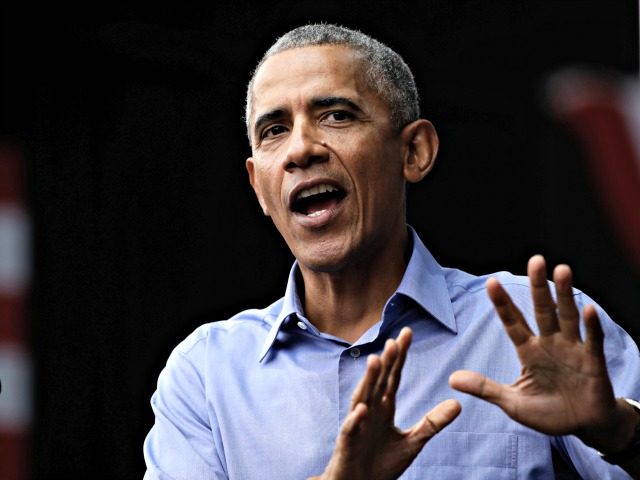A federal school safety commission led by members of the Trump administration is recommending that the Departments of Justice and Education rescind the Obama-era school policy that urged more lenient forms of discipline in public schools for students of color and those of other minority groups.
In its final report released Tuesday, the commission concluded the “guidance” issued by the Obama administration in 2014 “may have paradoxically contributed to making schools less safe.”
Some education policy experts have observed the Broward County school district’s policy that includes consideration of race and minority status where discipline is concerned, inspired the Obama administration’s guidance and may have played a role in the fact that Nikolas Cruz remained under the radar until his shooting rampage in Parkland, Florida, on February 14.
The Obama-era Departments of Education and Justice – under Education Secretary Arne Duncan and Attorney General Eric Holder – issued school guidelines that claimed students of color are “disproportionately impacted” by suspensions and expulsions, a situation they said led to a “school-to-prison pipeline” that discriminates against minority and low-income students.
According to the Obama administration’s 2014 Dear Colleague letter (DCL), any school district whose disciplinary measures showed “disparate impact” – meaning a disproportionately greater number of minority students are affected by disciplinary measures – should be open to investigation by the Departments of Justice and Education, regardless of whether the behavior leading to the discipline is unacceptable.
Education policy analyst Max Eden, senior fellow at the Manhattan Institute, explains:
The directive, cast as a “guidance,” in fact formalized a fundamental shift in the Department of Education’s approach to civil-rights enforcement. Prior to the DCL, the standard held that civil rights are violated if students are treated differently because of race; for instance, if a black student and a white student both curse at a teacher, it’s wrong to suspend the black student and give the white student a warning. The DCL expanded the standard from disparate treatment to disparate impact; now, if two black students and one white student curse at a teacher, it could be a civil-rights violation to punish them all equally.
The safety commission stated in its final report it had “significant concerns … regarding the legal framework upon which the Guidance is based.”
“These concerns, together with the repeated concerns expressed by many that disciplinary decisions are best left in the hands of classroom teachers and administrators, warrant rescission of the Guidance,” the commission added.
The commission’s chair is Education Secretary Betsy DeVos, with Health and Human Services Secretary Alex Azar, Homeland Security Secretary Kirstjen Nielsen, and Acting Attorney General Matthew Whitaker also members.
In addition, the commission recommended that the Education Department compile “resources and best practices” to help schools develop safe environments that provide optimal conditions for learning while protecting the rights of all students.
The members strongly urge the Departments of Justice and Education “continue to vigorously enforce Title VI of the Civil Rights Act of 1964,” and help schools understand how cases of “intentional discrimination” will be investigated and resolved.
In a paper released in January, U.S. Civil Rights commissioner Gail Heriot, politically an Independent and a professor of law at the University of San Diego, wrote with her colleague, Alison Somin, of the dangers of the Obama-era policy:
The danger should have been obvious. What if an important reason more African-American students were being disciplined than white or Asian students is that more African-American students were misbehaving? And what if the cost of failing to discipline those students primarily falls on their fellow African-American students who are trying to learn amid classroom disorder? Would unleashing OCR and its army of lawyers cause those schools to act carefully and precisely to eliminate only that portion of the discipline gap that was the result of race discrimination? Or—more likely—would schools react heavy-handedly by tolerating more classroom disorder, thus making it more difficult for students who share the classroom with unruly students to learn?
The authors continued that the Department of Education’s disparate impact policy is “encouraging discrimination rather than preventing it”:
When it comes to school discipline policy, the federal government has an unimpressive track record. In the past, it has pressed local schools to adopt tough “zero-tolerance” rules for guns (including things that appear to be guns), resulting in children being suspended for “guns” made out of a nibbled Pop Tart or a stick. Similarly, on too many occasions, its get- tough, policies on sexual harassment have led to disciplinary actions against kindergarteners and first-graders—children generally too young to spell “sexual harassment,” much less engage in it.
More recently, we’ve been seeing an overcorrection. The federal government’s policy developed during the Obama Administration has been to press schools to lighten up on school discipline, specifically to benefit African Americans and other racial minorities. But both efforts to dictate broad discipline policy, while well-meaning, are wrongheaded. It’s time for the federal government to get out of the business of dictating broad discipline policy.
In March 2016, Katherine Kersten also wrote at the Star Tribune about the dangers associated with the Obama-era policy that she saw as having developed into an ideology.
Noting the increasing number of student assaults against St. Paul, Minnesota teachers, as well as student riots requiring police intervention since the adoption of the Obama-era lax disciplinary practices, Kersten observed a comment from one teacher: “We have a segment of kids who consider themselves untouchable.”
“Most parents will tell you that if you eliminate consequences for kids’ bad behavior, you can expect a lot more of it,” Kersten wrote. “It’s common sense. But we’re not talking about common sense here.”
“We’re talking about a powerful ideology that has gripped the imagination of Twin Cities school officials — and far beyond,” she explained. “That’s the notion of ‘equity’ — a buzzword that is rapidly becoming the all-purpose justification for dubious policies not only in education but in many public arenas.”

COMMENTS
Please let us know if you're having issues with commenting.